- Camden County College, a comprehensive public community college in New Jersey, provides accessible and affordable education including associate degree programs, occupational certificates programs, non-credit courses, and customized job training. The College welcomes all who can benefit and provides the support services students need to transfer for further studies, prepare for a career, and continue their education. The College responds to the changing needs of its community and students and continuously improves its programs and services to support the economic development of Camden County and the personal development of its citizens.
School Highlights
Camden County College serves 15,437 students (26% of students are full-time).
The college's student:teacher ratio of 27:1 is higher than the state community college average of 19:1.
Minority enrollment is 56% of the student body (majority Hispanic and Black), which is less than the state average of 65%.
Quick Stats (2025)
- Enrollment: 15,437 students
- In-state tuition: $4,440
- Out-state tuition: $4,440
- Student:teacher ratio: 27:1
- Minority enrollment: 56%
- Source: Integrated Postsecondary Education Data System (IPEDS)
Top Rankings
Camden County College ranks among the top 20% of public schools in New Jersey for:
School Overview
The teacher population of 575 teachers has stayed relatively flat over five years.
Camden County College
(NJ) Community College Avg.
Carnegie Classification
Associate's Colleges: High Transfer-High Nontraditional
Baccalaureate Colleges: Diverse Fields
Institution Level
At least 2 but less than 4 years
At least 2 but less than 4 years
Institution Control
Public
Private not-for-profit
Total Faculty
575 staff
439 staff
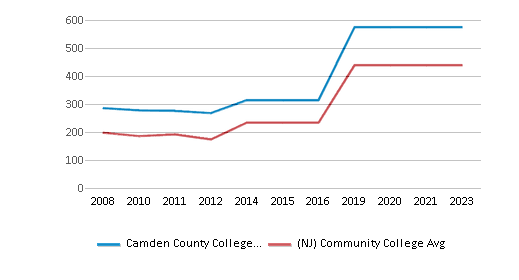
School Calendar
Student Body
The student population of Camden County College has grown by 58% over five years.
The student:teacher ratio of 27:1 has increased from 14:1 over five years.
The Camden County College diversity score of 0.73 is less than the state average of 0.77. The school's diversity has stayed relatively flat over five years.
Total Enrollment
15,437 students
1,067 students
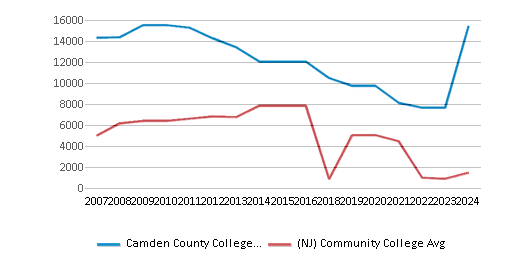
Student : Teacher Ratio
27:1
19:1
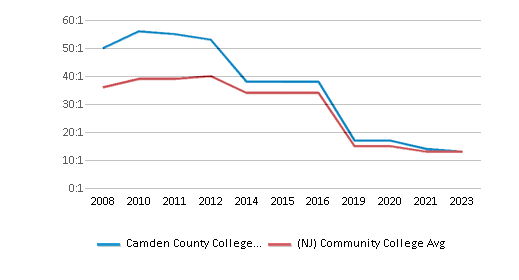
# Full-Time Students
4,050 students
699 students
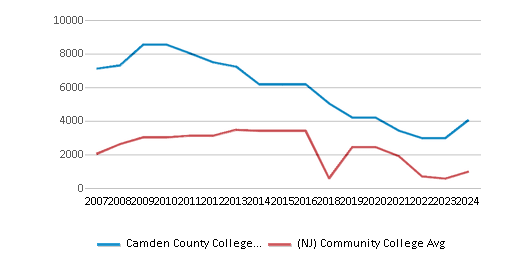
# Part-Time Students
11,387 students
1,319 students
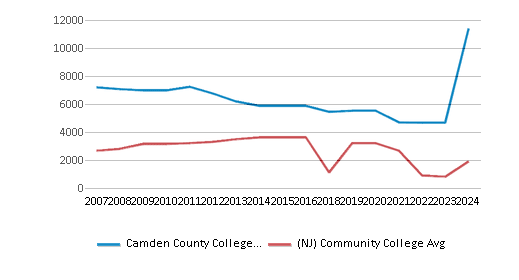
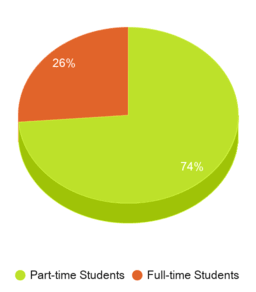
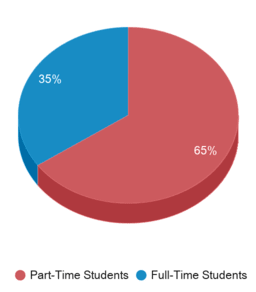
# Enrollment Undergraduate
154 students
327 students
# Full-Time Undergraduate Students
4,050 students
699 students
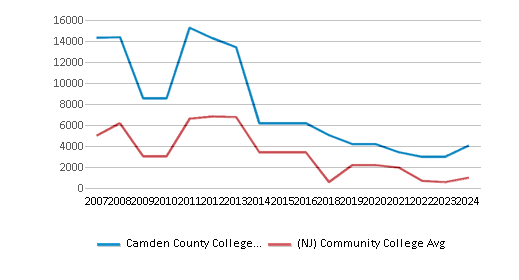
# Full-Time Graduate Students
n/a
50 students
# Part-Time Undergraduate Students
11,387 students
1,213 students
# Part-Time Graduate Students
n/a
6 students
Total Dormitory Capacity
n/a
20 students
% American Indian/Alaskan
1%
n/a
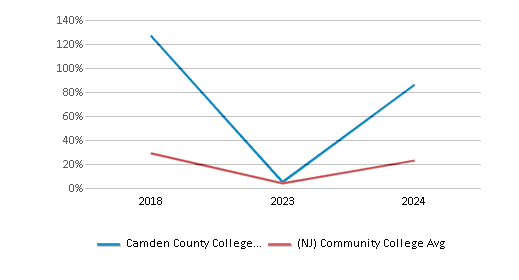
% Asian
6%
8%
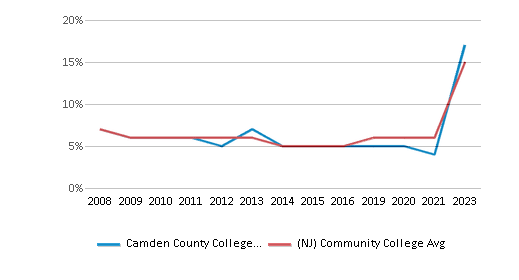
% Hispanic
20%
26%
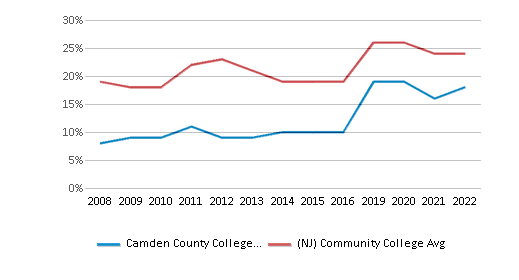
% Black
18%
15%
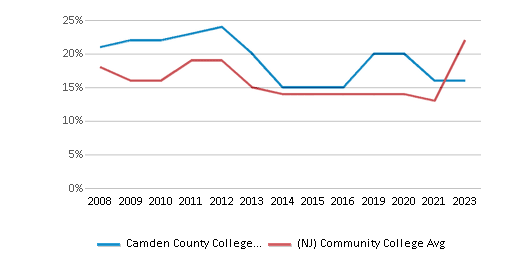
% White
44%
35%
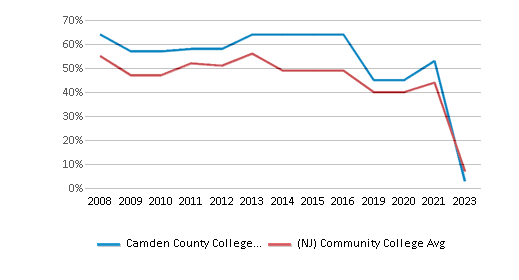
% Hawaiian
n/a
1%
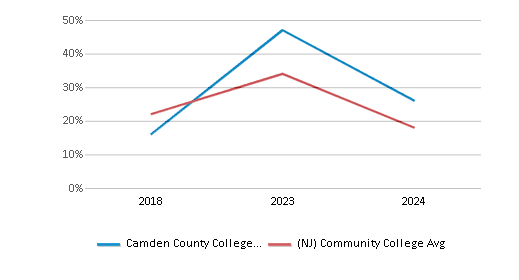
% Two or more races
3%
3%
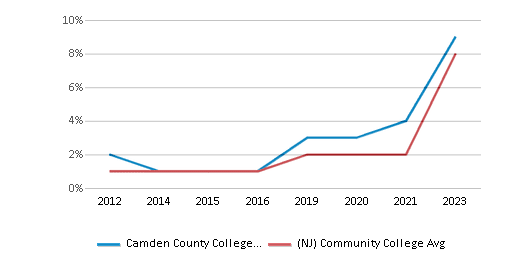
% Non Resident races
3%
2%
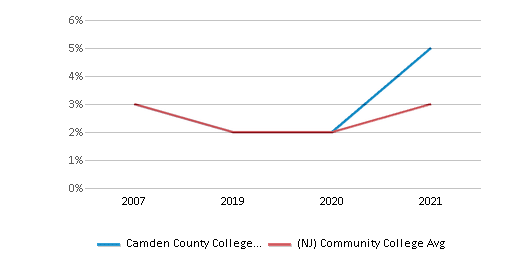
% Unknown races
7%
10%
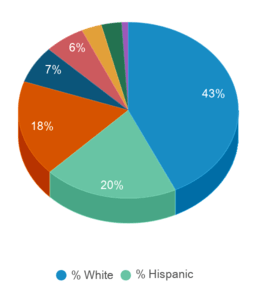
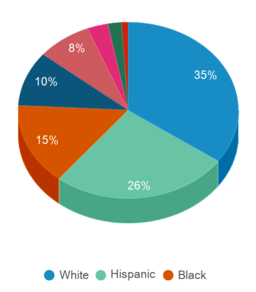
Diversity Score
0.73
0.77
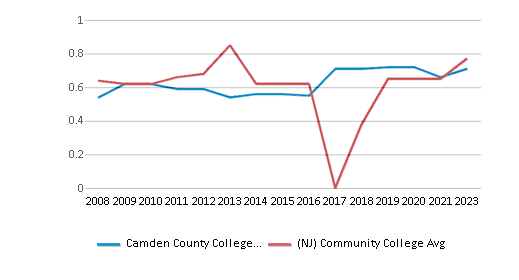
College Completion Rate (Students who graduate in less than 4 years)
0.2159%
0.3963%
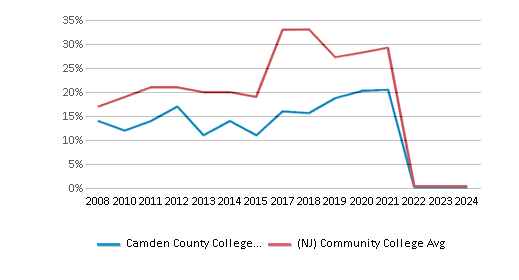
College Completion Rate (Students who graduate in 4 years or more than 4 years)
n/a
0.42%
Average Graduate Earnings (10 Years)
$35,400
$36,100
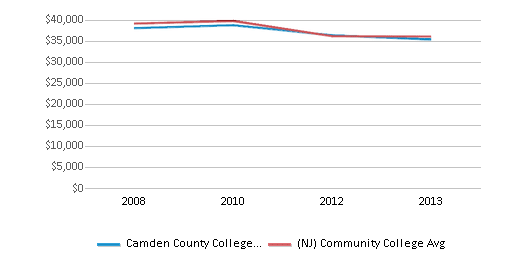
Tuition and Acceptance Rate
The public in-state tuition of $4,440 is less than the state average of $5,470. The in-state tuition has declined by 5% over four years.
The public out-state tuition of $4,440 is less than the state average of $7,575. The out-state tuition has declined by 5% over four years.
In-State Tuition Fees
$4,440
$5,470
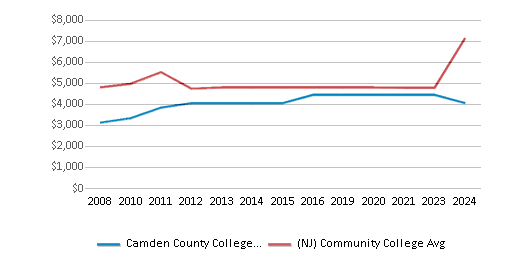
Out-State Tuition Fees
$4,440
$7,575
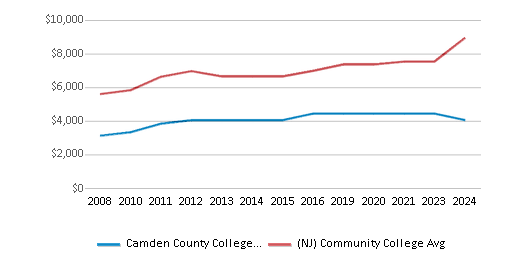
% Students Receiving Some Financial Aid
73%
87%
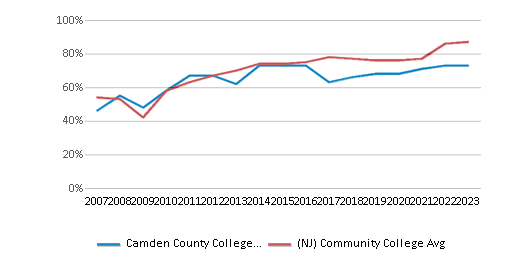
Median Debt for Graduates
$11,500
$11,000
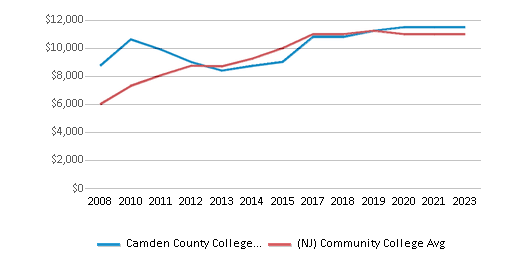
Median Debt for Dropouts
$5,500
$5,500
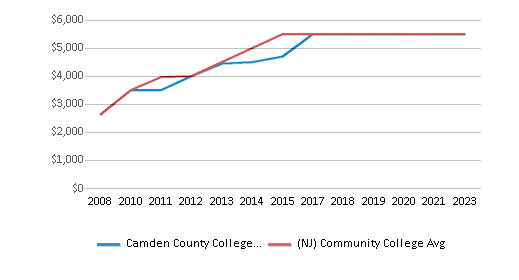
Acceptance Rate
n/a
76%
Source: 2024 (or latest year available) Integrated Postsecondary Education Data System (IPEDS)
School Notes
- With over 130 degree and certificate programs, Camden County College is one of the nation's fastest growing two-year colleges. We provide convenient, high quality and affordable education with a commitment to lifelong learning, job training and enrichment for adults of all ages. Camden County College is three distinct campuses (Blackwood, Camden, and Cherry Hill) with a common mission. That mission was launched when Camden County College purchased what had been Mother of the Savior Seminary – along with the 320-acre tract of land surrounding it – early in 1967. By September of that year, the first class of Camden County College students was taking courses on the Blackwood Campus. Camden County College serves an enrollment of more than 30,000 credit students and thousands more non-credit students each year. Programs cover technical fields like automotive technology and mechanical engineering; health professions like nursing and medical coding; and liberal arts and sciences like English and chemistry. There also is a multitude of recreational offerings, ranging from social dancing to computer studies. In addition, it is acknowledged regionally as a vital resource for transfer education, customized training and community cultural events. Because it has maintained one of the lowest tuition rates of any college or university in the state or region while offering such outstanding programming, the college has come to be known as the best higher educational value in the Delaware Valley.
Frequently Asked Questions
How much does Camden County College cost?
Camden County College's tuition is approximately $4,440 for In-State students and $4,440 for Out-State students.
What is Camden County College's ranking?
Camden County College ranks among the top 20% of community college in New Jersey for: Least expensive tuition and Largest student body.
Recent Articles

Obtaining Your Bachelor's Degree at a Community College
Explore the evolving landscape of community colleges offering bachelor's degrees, addressing affordability, accessibility, and workforce needs.

A to Z of Community College Certificates and Courses
From business and healthcare to technology and skilled trades, the article showcases the breadth of options available to students seeking to enhance their knowledge, develop new skills, or pursue career advancement.

What is a Community College?
This comprehensive guide explains what a community college is, its history, and its role in higher education. It covers the types of programs offered, differences from four-year colleges, benefits of attending, and important considerations for prospective students, providing valuable insights for those exploring educational options.










